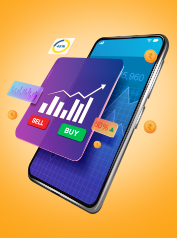Personal Loan Based on Your Needs
Personal Loan for Wedding Personal Loan for Travel Personal Loan for Medical Emergency ₹1 Lakh Personal Loan ₹50,000 Personal Loan Personal Loan for EmergencyBusiness Loan Details
Compare Business Loan Interest Rates Business Loan EMI Calculator Business Loan Eligibility Business Loan Documents RequiredBusiness Loans Based on Your Needs
Business Loan for Startups Business Loan for Women Machinery Loan ₹5 Lakh Business Loan ₹50 Lakh Business LoanHome Loan Based on Your Needs
Home Construction Loan Home Renovation Loan ₹50 Lakh Home Loan EMI Home Loan on ₹40,000 Salary Home Loan for Women Home Loan for Bank EmployeesPopular Home Loan Balance Transfer Options
Bajaj Housing Finance Home Loan Balance Transfer PNB Housing Finance Home Loan Balance Transfer LIC Housing Finance Home Loan Balance Transfer ICICI Bank Home Loan Balance Transfer L&T Finance Home Loan Balance Transfer Sammaan Capital Home Loan Balance TransferHome Loan Balance Transfer Overview
Home Loan Balance Transfer EMI Calculator Documents Required for Home Loan Balance TransferLoans for Studying Abroad
Education Loan for UK Education Loan for Australia Education Loan for SingaporePopular Two Wheeler Loans
Bajaj Auto Credit Two Wheeler Loan Muthoot Capital Two Wheeler Loan L&T Finance Two Wheeler LoanUsed Car Loan Overview
Used Car Loan Eligibility Criteria Used Car Loan Interest Rates Used Car Loan EMI Calculator Used Car Loan StatusPopular Used Car Loan
Bajaj Finance Used Car LoanLoan Against Property Based on Your Needs
Commercial Property Loan Mortgage Loan Loan Against Property To Start Business ₹40 Lakh Loan Against PropertyPopular Loan Against Property Balance Transfer Options
Bajaj Housing Finance Loan Against Property Balance Transfer ICICI Bank Loan Against Property Balance Transfer L&T Finance Loan Against Property Balance Transfer LIC Housing Finance Loan Against Property Balance Transfer PNB Housing Finance Loan Against Property Balance Transfer Sammaan Finserve Loan Against Property Balance TransferCard Usage & Benefits
How to Use EMI Card Where EMI Card is Accepted Pay EMI Online Insta EMI Card OffersUnderstanding an EMI Card
What is EMI Card? Features & Benefits EMI Card Charges & Fees EMI Card FAQs EMI Card Vs Credit CardThings You Need to Know
Credit Card Login Credit Card Statement Credit Card Interest Rates Credit Card Payment Credit Card Charges Credit Card Limit Credit Card Reward Points Credit Card OffersEligibility & Application Process
Credit Card Eligibility Documents Required for Credit Card Credit Card Application StatusExplore Health Insurance
Individual Health Insurance Top Up Health Insurance Health Insurance Renewal Critical Illness Insurance Preventive Health Check Up Family Health InsurancePopular Health Insurance Plans
Niva Bupa Health Insurance Tata AIG Health Insurance Care Health InsuranceHealth Plans by Coverage Amount
₹1 Lakh Health Insurance Plan ₹3 Lakh Health Insurance Plan ₹5 Lakh Health Insurance Plan ₹50 Lakh Health Insurance PlanMonthly Interest Rate on Fixed Deposit
₹1 Lakh Fixed Deposit ₹3 Lakh Fixed Deposit ₹6 Lakh Fixed Deposit ₹8 Lakh Fixed Deposit ₹10 Lakh Fixed DepositDemat Account Overview
How to open a demat account Documents Required for Demat Account Eligibility criteria for Demat Account Demat InsightsTypes of Demat Account
Basic Service Demat Account Repatriable Demat Account Non Repatriable Demat AccountAccount Holder Types
Corporate Demat Account Joint Demat Account Minor Demat Account NRI Demat AccountStock Market Sectors
All Sectors Banking Sector Finance Sector Infrastructure Sector Health Care SectorLearn what notional value means and how it is used to indicate the scale of derivative contracts.
Notional value is a fundamental concept in derivatives, futures, swaps, and options trading. It represents the total underlying value of a leveraged position, even though the actual capital invested (the premium or margin) is much smaller.
In simple terms, notional value indicates the overall value represented by a contract rather than how much you pay upfront.
Notional value refers to the face value or total contract value of an underlying asset in a derivative or leveraged financial instrument. It is used to calculate:
Profit and loss
Required margin
Exposure to market movements
Contract obligations
It does not represent the actual cash exchanged but the value on which gains, losses, and payouts are based.
To understand notional value, consider this:
You might pay only ₹5,000 as margin or premium,
But the derivative contract may represent ₹5,00,000 worth of an underlying asset.
Here, ₹5,00,000 is the notional value, showing the size of the position you effectively control.
This distinction is important because derivatives amplify both gains and losses relative to the small investment made.
The calculation depends on the type of instrument (options, futures, swaps, etc.), but the core idea is:
Notional Value = Lot Size × Futures Price
Notional Value = Contract Size × Underlying Asset Price
Notional Value = Principal Amount (used for calculating payments)
The universal formula is:
This formula applies to futures, options, currency contracts, and other derivatives.
Understanding how these two values differ provides a clearer view of exposure versus actual investment:
| Notional Value | Market Value |
|---|---|
Represents the total underlying value a contract controls |
Represents the current price of the asset if bought/sold in the market |
Used mainly in derivatives |
Relevant for stocks, bonds, and physical assets |
Often much larger than actual investment |
Equal to the investment made |
Determines exposure and leverage |
Determines portfolio worth |
Example:
You buy an option that controls 100 shares at ₹200 each.
Notional Value = 100 × ₹200 = ₹20,000
But you may pay only ₹1,000 as premium.
Market value of investment = ₹1,000
Notional value is used to:
Measure exposure: Shows how much the investor stands to gain or lose.
Assess leverage: Derivatives give large exposure with small investment.
Calculate margin: Exchanges use notional value to set margin requirements.
Price derivatives: Many payouts and settlement amounts are based on notional value.
Evaluate risk: A higher notional value may be associated with greater sensitivity to price movements.
Here are some of the common misconceptions:
It is the cost of the contract – Incorrect. The premium/margin is the cost; notional value is the exposure.
Notional value and market value are the same – They are completely different.
Higher notional value means higher investment – Not true; investment remains small in leveraged products.
Notional value applies only to options – It applies to futures, swaps, and many derivatives.
Notional value is a vital concept in derivatives trading, helping quantify exposure without confusing it with real investment size. It offers clarity on leverage and overall market risk.
Points to Remember:
Notional value represents the total exposure of a derivative contract.
It is calculated by multiplying contract size with price of underlying asset.
It is not the actual investment amount—just the value on which P&L is based.
It is essential for understanding leverage, risk, margin, and derivative pricing.
Inaccurate interpretation of notional value may affect how risk is assessed.
This content is for informational purposes only and the same should not be construed as investment advice. Bajaj Finserv Direct Limited shall not be liable or responsible for any investment decision that you may take based on this content.
The notional value of a derivative is the total value of the underlying asset that the derivative contract represents or controls. It reflects the scale of exposure rather than the amount actually paid.
Notional value in options is calculated using the formula: Notional Value = Contract Size × Price of the Underlying Asset. This indicates the full value of the underlying asset controlled by the option contract.
Notional value is important because it shows the level of market exposure linked to a derivative position. It is also used in determining margin requirements and forms the basis for calculating potential profits and losses.
If an option contract represents 50 shares and the share price is ₹150, the notional value is: 50 × ₹150 = ₹7,500. This represents the total value of the underlying shares controlled by the option.
Notional value is applied across various derivative instruments, including futures, options, swaps, forwards, currency derivatives, and leveraged products. It helps assess exposure and risk across these contracts.
.jpeg)
With a Postgraduate degree in Global Financial Markets from the Bombay Stock Exchange Institute, Nupur has over 8 years of experience in the financial markets, specializing in investments, stock market operations, and project management. She has contributed to process improvements, cross-functional initiatives & content development across investment products. She bridges investment strategy with execution, blending content insight, operational efficiency, and collaborative execution to deliver impactful outcomes.

Unlock the world of credit! From picking the perfect card to savvy loan management, navigate wisely.

Money Management and Financial Planning covers personal finance basics, setting goals, budgeting...

Explore the investment cosmos! From beginner's guides to sharp-witted strategies, explore India's treasure trove of options.

Navigate the tax maze with ease! Uncover Income Tax 101, demystify jargon with Terms for Beginners, and choose between Old or New Regimes.

Discover essential insights on various types of insurance in India.

Welcome to Tech in Finance, where we explore the exciting intersection of technology and finance...













